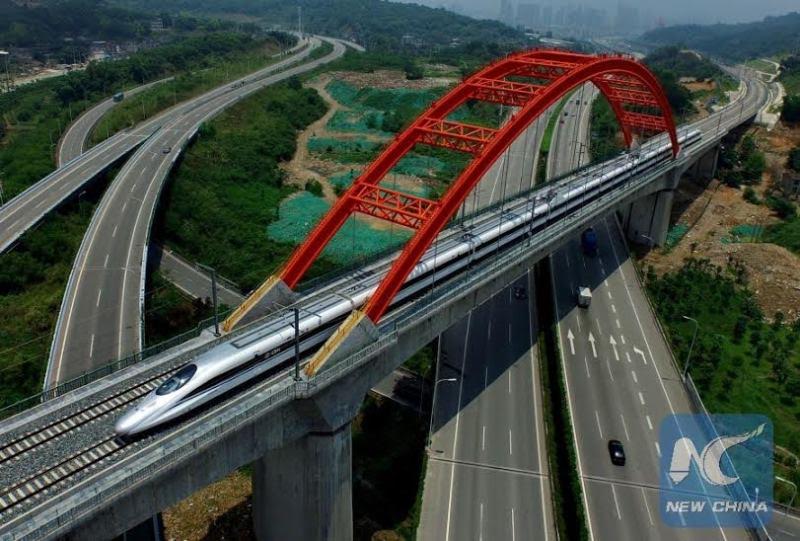


BELGRADE, June 23 (Xinhua) -- The preparations for the construction of a Chinese high-speed railway between the capital cities of Serbia and Hungary is underway and on schedule, said the Serbian Ministry of Transport, Construction and Infrastructure.
On a three-day visit of Chinese Vice Premier Zhang Gaoli to Serbia which commenced Monday, Serbian minister Zorana Mihajlovic explained that cooperation among the three countries on the several-billion-dollar project had intensified. Mihajlovic said they would discuss the feasibility study and financing for the project of the modernization of the Belgrade-Budapest railway in mid-July.
The project for the modernization of the Belgrade-Budapest railway was initially agreed on in 2013 at the China-Central and Eastern European (CEE) countries leaders' meeting that took place in Bucharest, while at last year's summit held in Belgrade, China, Hungary and Serbia signed a memorandum of understanding.
At that point, Macedonia and Greece both expressed their willingness to partake in the project that is planned to turn Piraeus, the main port of Greece, into a Chinese hub for trade with Europe.
The cooperation plan for the construction of the railway was signed in the beginning of this year in Belgrade at the meeting of the Trilateral Group of China, Hungary and Serbia for Traffic and Infrastructure Cooperation, setting dates for certain phases of the project.
According to the plan, the construction of the railway should begin by the end of 2015, after the feasibility study and financial model are agreed upon, with the railway scheduled to be fully completed in 2017.
The 370 km section of the railway between Belgrade and Budapest will significantly improve the transport of passengers and goods between the two countries, as it will decrease the time of travelling of trains from eight to less than three hours.
Once finished, the double track on the route between the Mediterranean and the Danube will enable trains to run as fast as 200 km per hour, and this enables China's land-sea passage to become a new, convenient channel for trade.
 Students take graduation photos in ancient costumes
Students take graduation photos in ancient costumes Forbidden City collects evidence from nude photo shoot
Forbidden City collects evidence from nude photo shoot Dragon boat race held to celebrate upcoming Duanwu Festival
Dragon boat race held to celebrate upcoming Duanwu Festival  Chinese students learn Duanwu customs in Hefei, Anhui
Chinese students learn Duanwu customs in Hefei, Anhui Abandoned village swallowed by nature
Abandoned village swallowed by nature Graduation: the time to show beauty in strength
Graduation: the time to show beauty in strength School life of students in a military college
School life of students in a military college Top 16 Chinese cities with the best air quality in 2014
Top 16 Chinese cities with the best air quality in 2014 Mysterious “sky road” in Mount Dawagengzha
Mysterious “sky road” in Mount Dawagengzha Dialogue key to set future China-US course
Dialogue key to set future China-US course New PLA campaign targets new recruits: Land Force
New PLA campaign targets new recruits: Land Force Migrant workers encouraged to start own firms
Migrant workers encouraged to start own firms New route for Indian pilgrims hailed as sign of warming ties
New route for Indian pilgrims hailed as sign of warming tiesDay|Week